Sihanoukville, Kampot, and Kep are three neighboring cities on the southern coast of Cambodia that cater to different types of travelers. If you’re more of a party animal and enjoy a younger backpacker vibe, bounce over to Sihanoukville. If you like a greener and more relaxed environment, Kampot is a great choice. Finally, there’s Kep, a mellow province that combines the best of the latest with a bonus: seafood!
Sihanoukville
We first arrived near Sihanoukville after a 5-hour trip from Phnom Penh with Capital Tours. It was a $5 bus ride with TV, Cambodian karaoke, and a honking bus driver with Tourette’s syndrome of the hands! Apparently, honking it’s like a national habit—everyone is really committed to it.
We bought a bus ticket straight to Sihanoukville center, but that didn’t happen. We were dropped off at a random gas station, with a horde of tuk-tuk drivers expecting us. As the bus stopped, most of them reached for the luggage compartment below, while others stepped on the bus and started shouting:
– Sihanoukville! Exit here. Exit!
A bit confused and concerned to see our backpacks being taken away, we got off the bus along with all the other tourists, while the remaining locals on the bus laughed. As soon as all foreigners got off, the bus left straight to Sihanoukville.
There we were, stuck in an odd gas station with no other choice but to haggle a tuk-tuk ride to Sihanoukville. Everyone was furious and the negotiation process got a little bit heated. We ended up splitting a tuk-tuk with two Swedish girls and paid $4 each for what ended up being an 8-minute ride.
Another transport scheme, just like the one at the Poipet border.
If you haven’t booked your bus to Sihanoukville yet and want to do it through a reliable platform, go to www.bookaway.com. You can use the code “gravy5″ at checkout to get 5% off the ticket price.
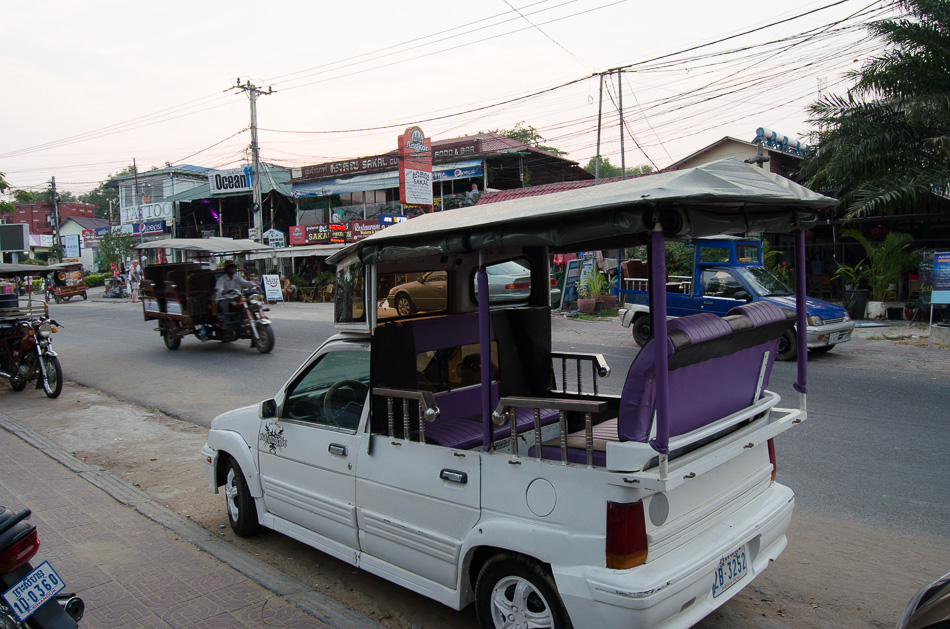
At Sihanoukville, we stayed in Zana Beach Guesthouse for $12 the room, is not the cheapest but quite nice and an 8-minute walk from Serendipity beach.
Tons of new accommodations are being built there as a result of tourist demand, unfortunately, this is having a big toll on the landscape as rubble ends up everywhere: sand, ocean, surf areas, gutters, and mountain slopes.
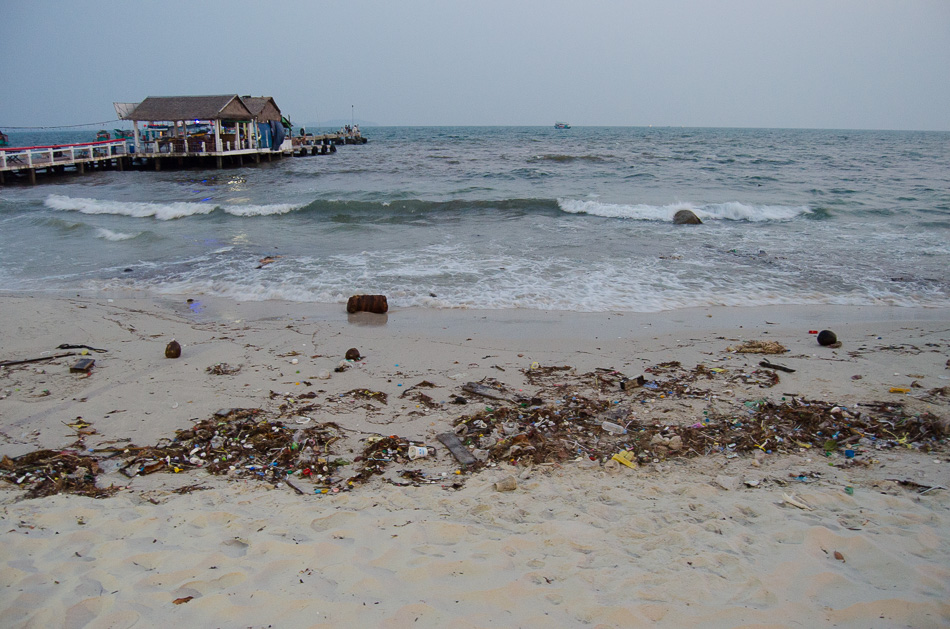
Serendipity is probably the best spot for wild party-prone backpackers. It’s full of party-oriented accommodations, bars, western restaurants, and tour agents selling tickets for booze cruises. If you’re looking for fun in the sun, this is it! During the day you can hang around the beach, swim, and eat barbecued corn or grilled skid from vendors passing by. As the sun begins to set, the music volume begins to rise and lounge chairs, tables, and torches furnish the beach for all-night partying.
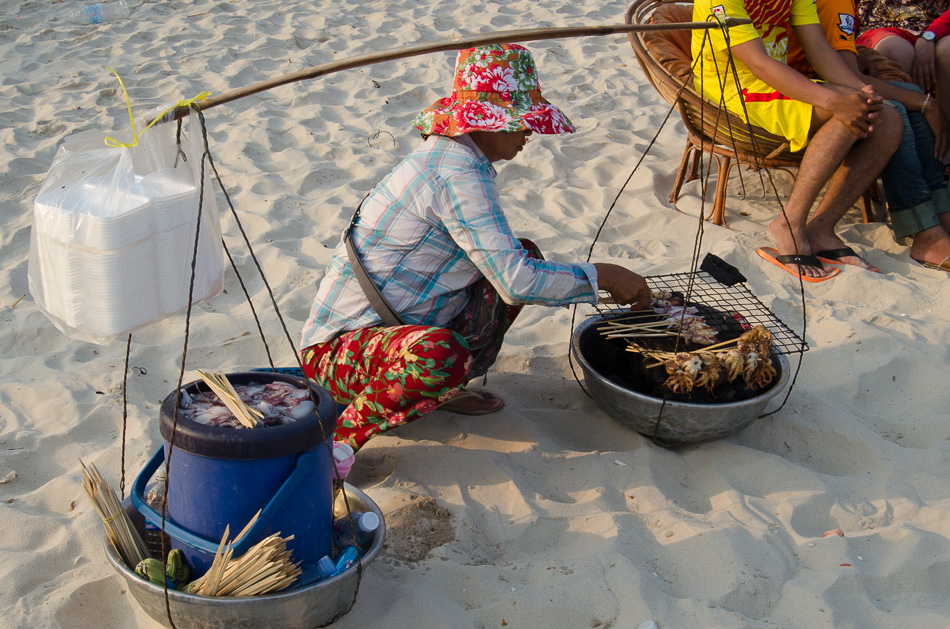

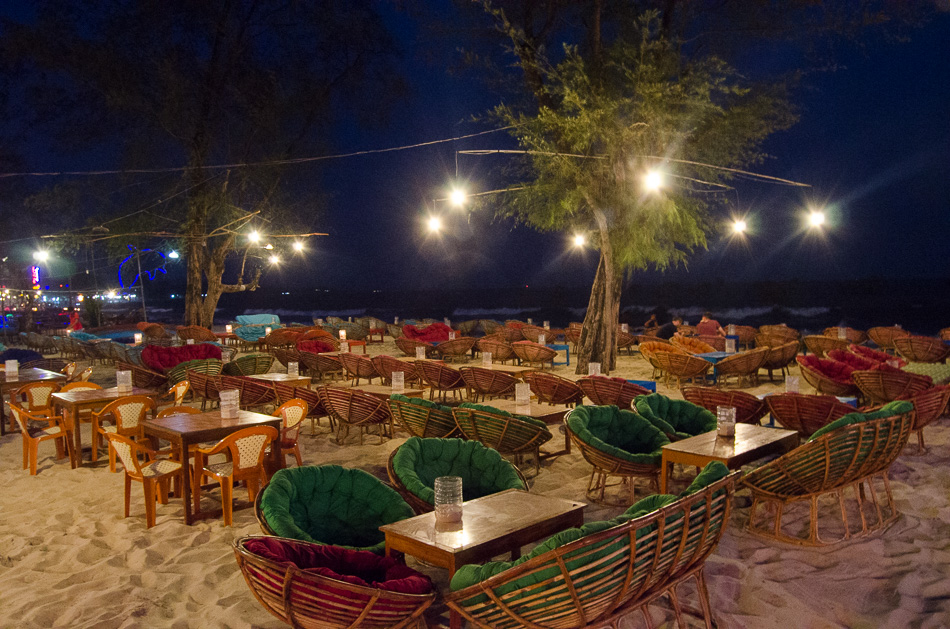
If you’re willing to walk around though, you can find beaches with different vibes. A 15-minute walk north of Serendipity is the peaceful Independence Beach, and pedaling for 25 minutes, can take you to Sokha Beach with tempting warm waters and white sands maintained by the resort close by.
Something peculiar we noticed in all Cambodian beaches was that most locals go into the ocean fully clothed. It was funny to watch dressed-up girls leaving their purses in the sand and getting soaked and pounded by the waves. I guess excuses like “I wanted it to get in, but I left my bathing suit at home…” are not valid here.
In Serendipity as in any other beach destination, meals tend to be more expensive.
Fortunately, we found a7 Makara Street 200, right next to the Golden Lions roundabout.
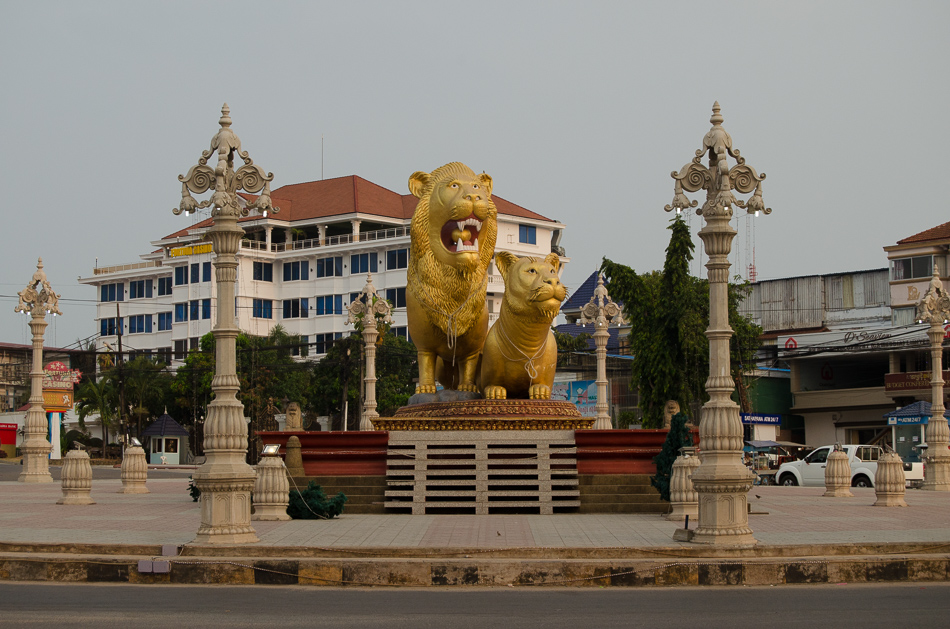
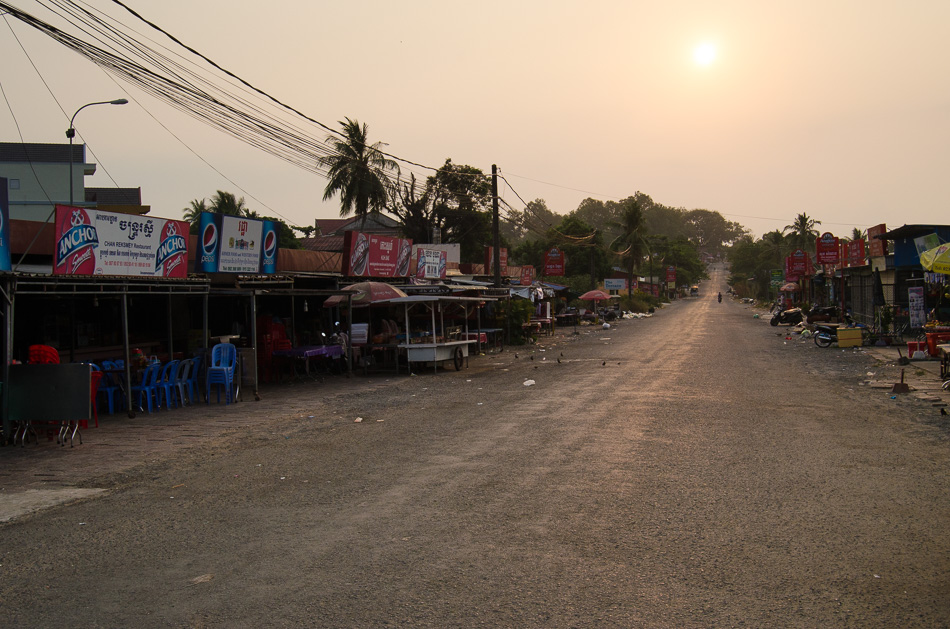
The street is flanked on both sides with local restaurants and our favorite was called Chanreaksmey—the average meal was $2.05. Go there and pick anything on the menu, seriously anything. You’re welcome! It had the best food I’ve tasted in our entire trip.
We stayed 6 days in Sihanoukville. 2 more than we’ve planned because we had to wait for our visas to be processed at the consulate of Vietnam. Being a well-known crossing point for backpackers traveling through South East Asia, Vietnam has a consulate here in Sihanoukville.
Kampot
We went from Sihanoukville to Kampot in a minivan. We bought our tickets for $5 in Champa. The trip took 2 hours and stopped near the Durian Roundabout — kind of a landmark here, just like the actual durians are.
If you prefer to buy your ticket to Kampot online, we recommend www.bookaway.com (use the code “gravy5″ at checkout you’ll get 5% off the ticket price).
Have you ever tasted a Durian? They’re like a creamy love child of a cantaloupe and a cabbage and have a really pungent smell. So much so that it is common to see signs prohibiting durians in hotel rooms and carriers.
Kampot is a quieter city along the River Praek Tuek Chhu: a river you can kayak, swim and go on sunset cruises with an occasional beer in the mix. Here you won’t find as many partygoers though.
Along the river, French influences are more noticeable in the architecture. You’ll find restaurants, bars, shops, and accommodations with slightly higher prices that you can avoid if you’re willing to walk a bit more into the city. Shops tend to close early, so remember to get an early dinner.
Our accommodation was near the durian roundabout: Sebana Guesthouse. We paid $7 a night, breakfast included.
Initially, we planned to stay 2 days in Kampot and 1 day in Kep, but Kampot felt right, so we decided to linger and rent a scooter to visit Kep — even without having driven one before. Ever.
Isn’t travel supposed to be about learning new things? We were honest about not knowing how to drive a scooter but that didn’t dissuade the renters. Apparently, the $5 scooter came with a driving lesson from an instructor experienced in novice drivers. He was calm, wise, and only knew about 3 English words, but in 8 minutes we learned how to ride a scooter and the 2 main Cambodian traffic rules:
1) Always wear a helmet
2) Never drive with the lights on during the day.
Traffic in Cambodia is wild! Let’s just say that speed limits are just reference points for pussies. Here, people drive in the opposite direction, talk on the phone, and use horns as their blinking lights, rear lights, and a way to say ‘hello’. And it’s also quite common to see 8-year-olds driving motorbikes, so there wasn’t much we could do wrong.
A couple of hours later we were at the Bokor National Park.
But don’t let the name fool you because it’s not like the ‘National Parks’ you’ve been on. Even though it has beautiful green hills and great views, there are no nature trails or wildlife to see. You can go on hikes, but a guide is recommended due to the risk of landmines still existing outside the pathways.
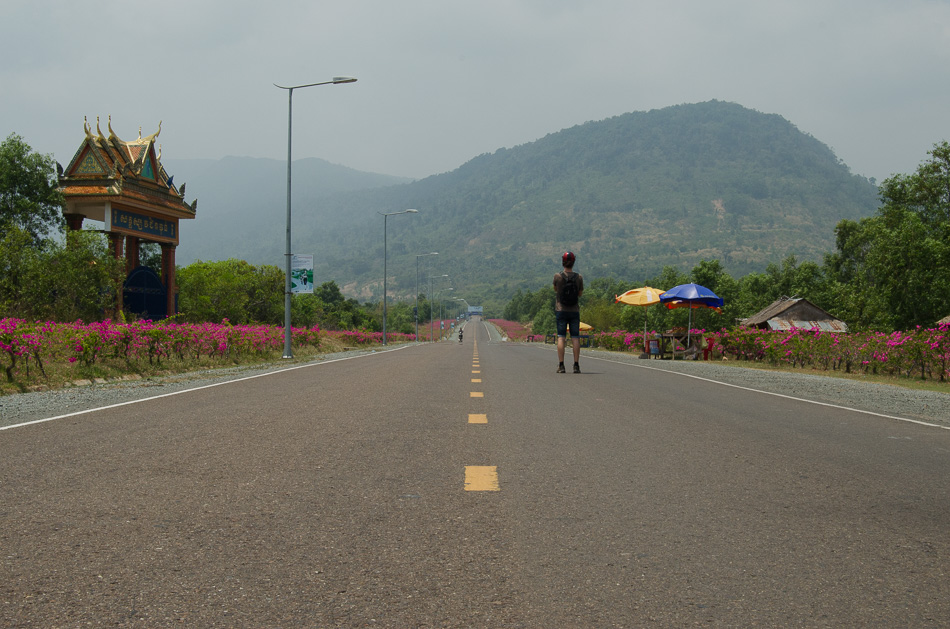
We used the long-swerve roads in the park to improve our riding skills. The roads passed by a big meditating Buddha (Lok Yeay Mao), old abandoned buildings, and an abandoned Casino at the top.
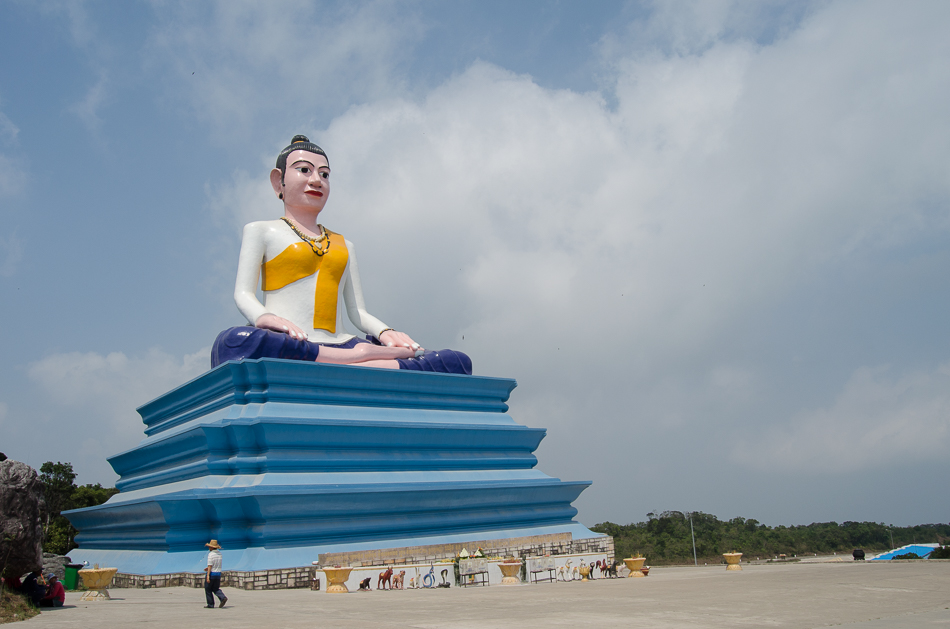
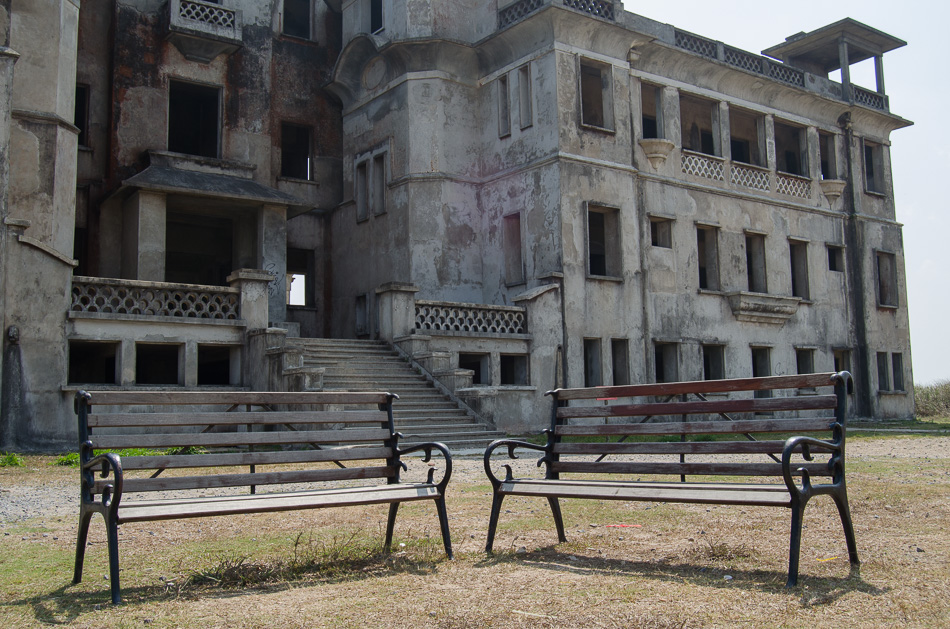
It’s worth the trip, the landscape is great all the way up and the old buildings are fun to explore, just make sure you take a jacket, snacks, and a full tank of gas.
Gas stations in Kampot give you free drinks and snacks when you fill your tank.
On our way back we did a little detour through red dusty roads with the intent of visiting the salt flats of Kampot. We arrived late in the afternoon and had the opportunity to watch some workers raking and hauling little piles of salt. It reminded us of the saltpans in Aveiro, our town back in Portugal.
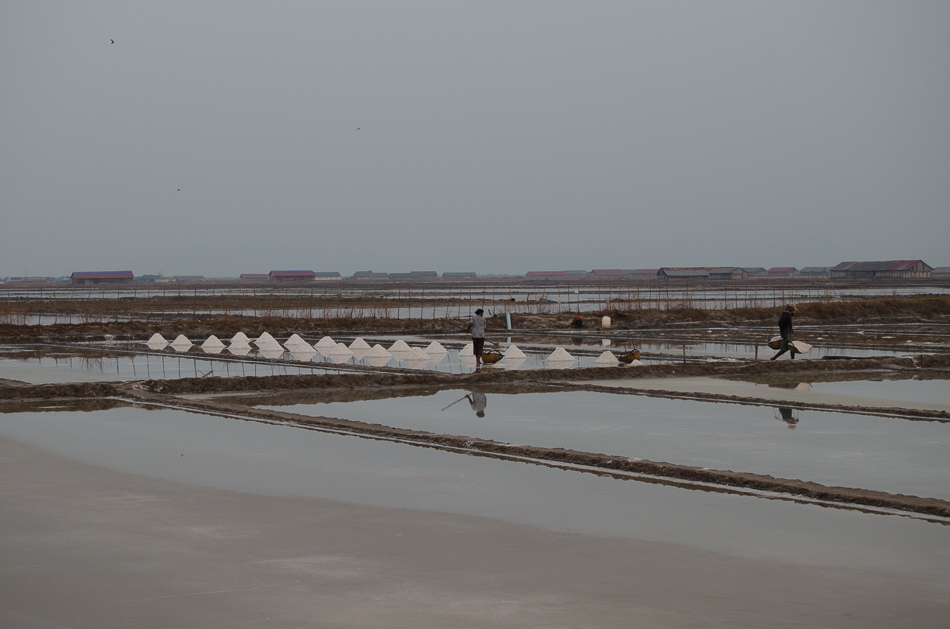
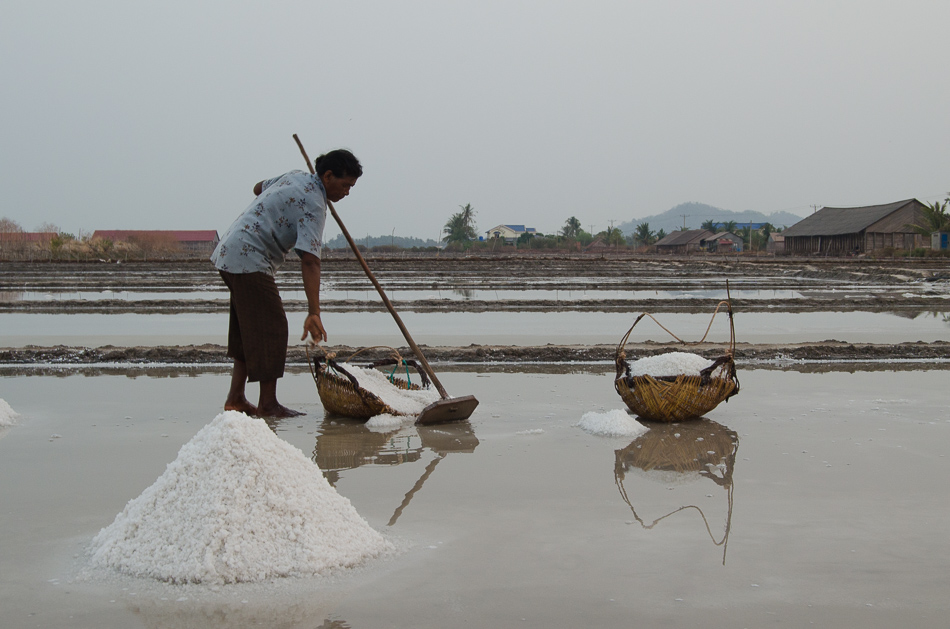
The next day we rented the scooter again and drove 1h30 to Phnom Chhnnork, a pre-Angkor temple inside a cave. You can get there easily using Maps.me and when in doubt, ask around, locals are always super helpful. The entrance fee to the temple is $1 and you’ll have the opportunity to go through a dark tunnel inside the cave.
You’ll find a bunch of kids with flashlights waiting to guide tourists through the tunnels, they speak good English and expect a $5 tip for the tour. But you can negotiate.
We didn’t cross the tunnel though, it felt claustrophobic and smelled like bat pee.
Salt and pepper
After the cave temple, we drove to La Plantation, a pepper plantation that was not easy to find. On the way there we stopped by the Secret Lake which turned out to be a dam and not a lake.
Cambodians grew pepper for over a thousand years before the European traders arrived. But with the help of the French during the colonial administration, production was augmented tenfold. Sadly during the Khmer Rouge regime pepper fields were abandoned.
Today the business has been reborn and is visible at La Plantation, a 10-hectare pepper farm specializing in the organic production of this hot spice. You can go on a free 10 minutes guided tour through the pepper fields, they’ll show you around and explain a little bit of the production process.
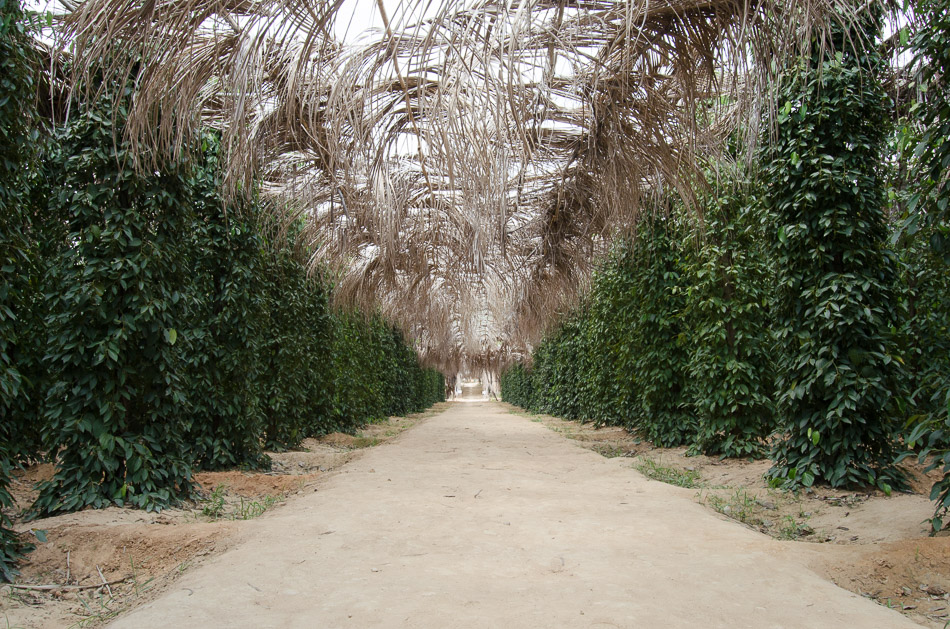
After the tour, they’ll take you to a little cafe on a gazebo to taste the peppercorns—and buy some if you want, of course.
Kep
We left La Plantation planning to have lunch at Kep, a town well-known for its great fish and seafood, but the sloping dirt roads and opposite information didn’t make it easy. The trip took us around 40 minutes.
The first thing we saw was the crab market, bustling with people negotiating over pyramids of seafood, fresh fish, grilled fish, and fruit. Restaurants overlooking the sea invite you in to taste the catch of the day, while fishermen walk along the seashore fishing for something more.
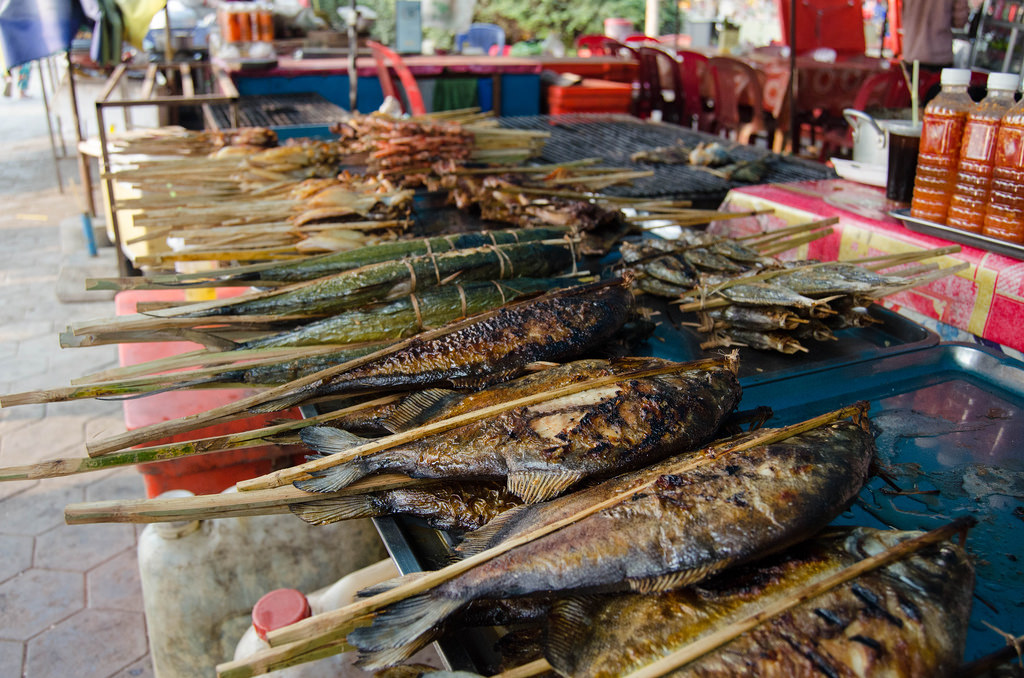

With a full stomach, we headed to Kep’s only beach, a small bay with a thin stretch of sand protected by hills that tend to get pretty crowded on the weekends. There weren’t many people around that day, just some local families picnicking on the sidewalks. We couldn’t find any town center as things seemed a bit scattered here and there.
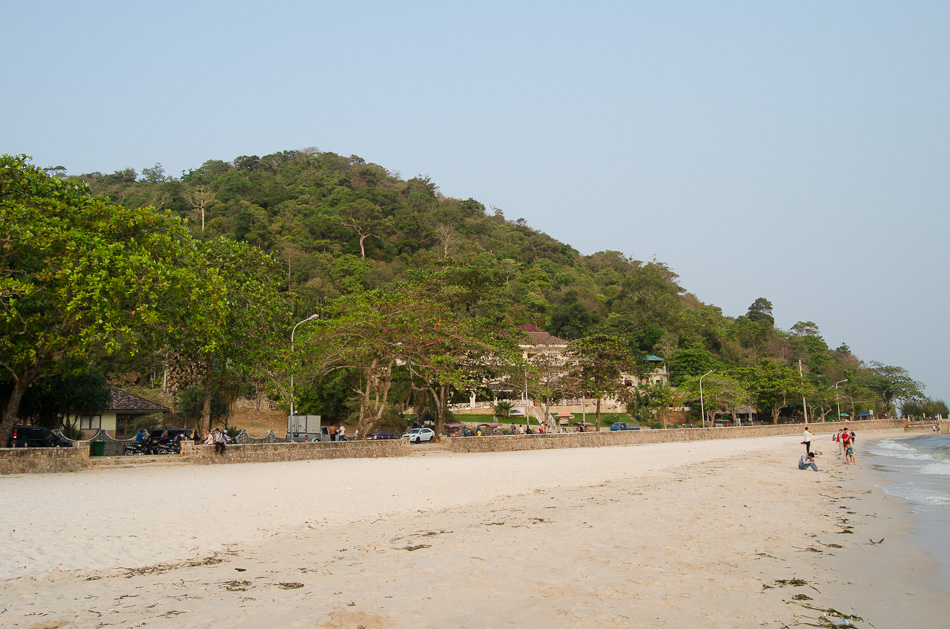
Southern Cambodia travel expenses (Daily average for 1 person)
Breakfast: 1,75€
Lunch and Dinner: 2,38€
Water: 0,36€
Coffee: 0,45€
Accommodation: 3,81€
Motorbikes: 4,48€
Full tank of Gas: 2,68€
If you have any questions or some extra info everybody can benefit from, please leave it in the comments!
RELATED POSTS
September 17, 2023
Crossing Vietnam – Laos borders overland
Laos Visa on Arrival (2023 update) According to feedback from some fellow travelers in 2023, it has not been possible to get a…
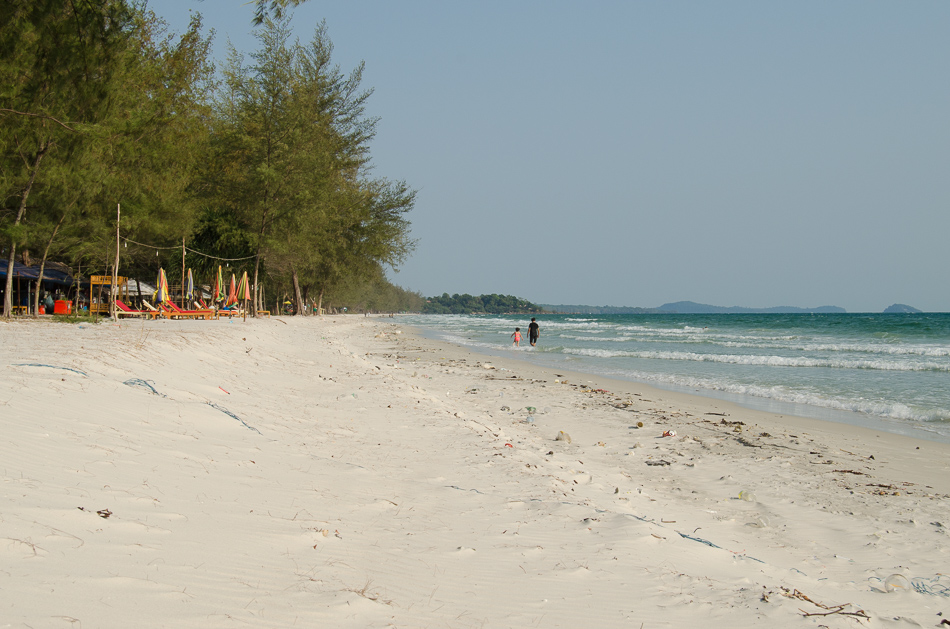
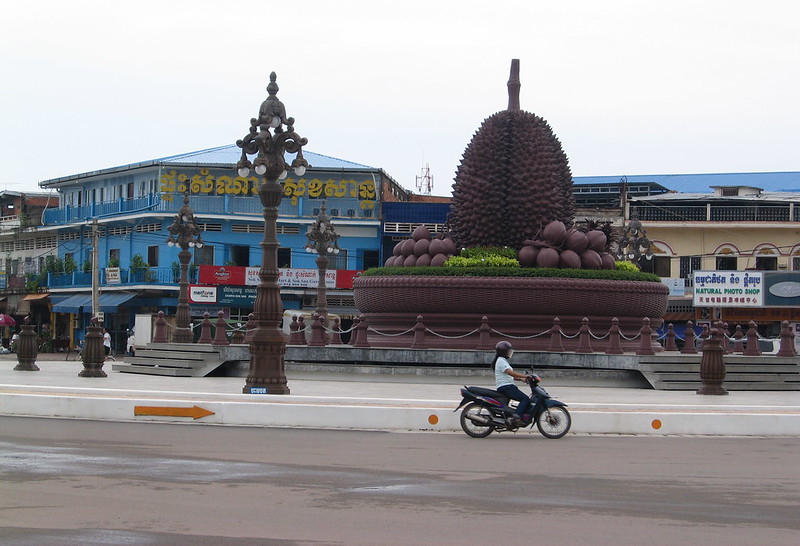
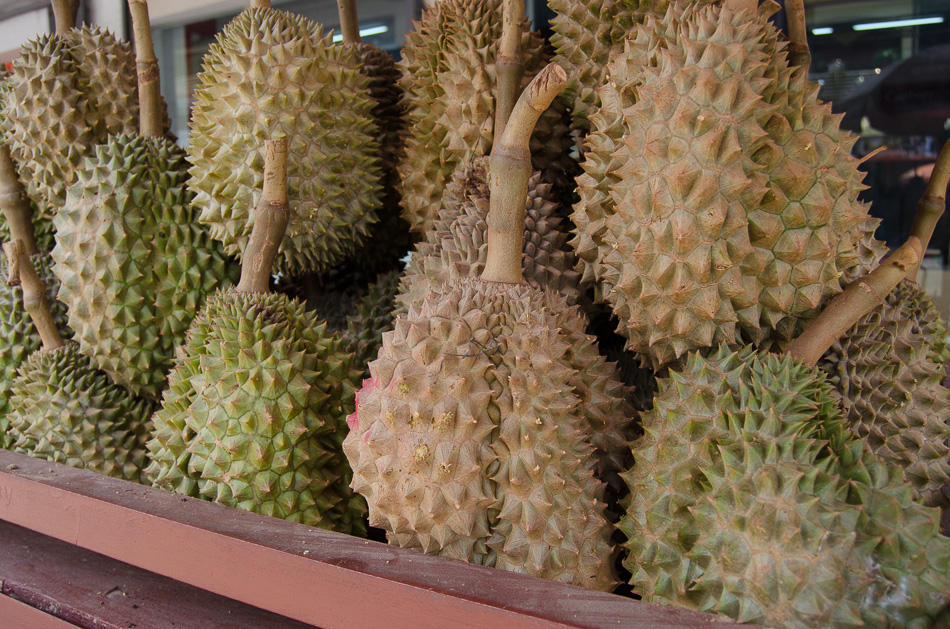

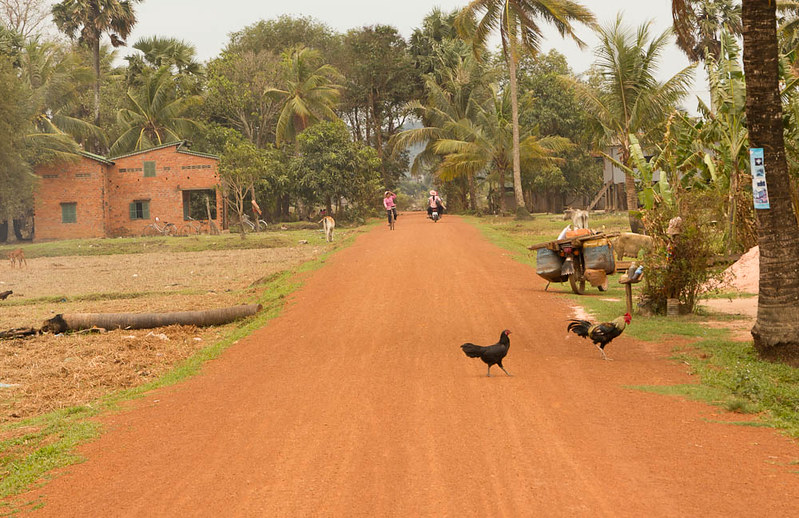
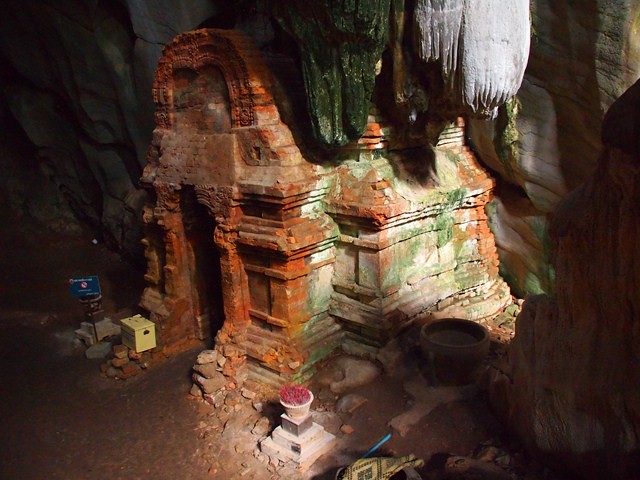
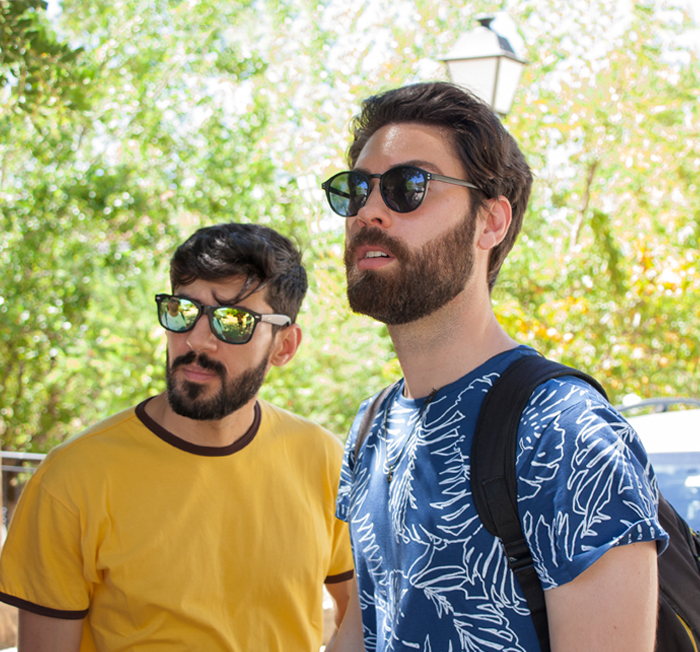

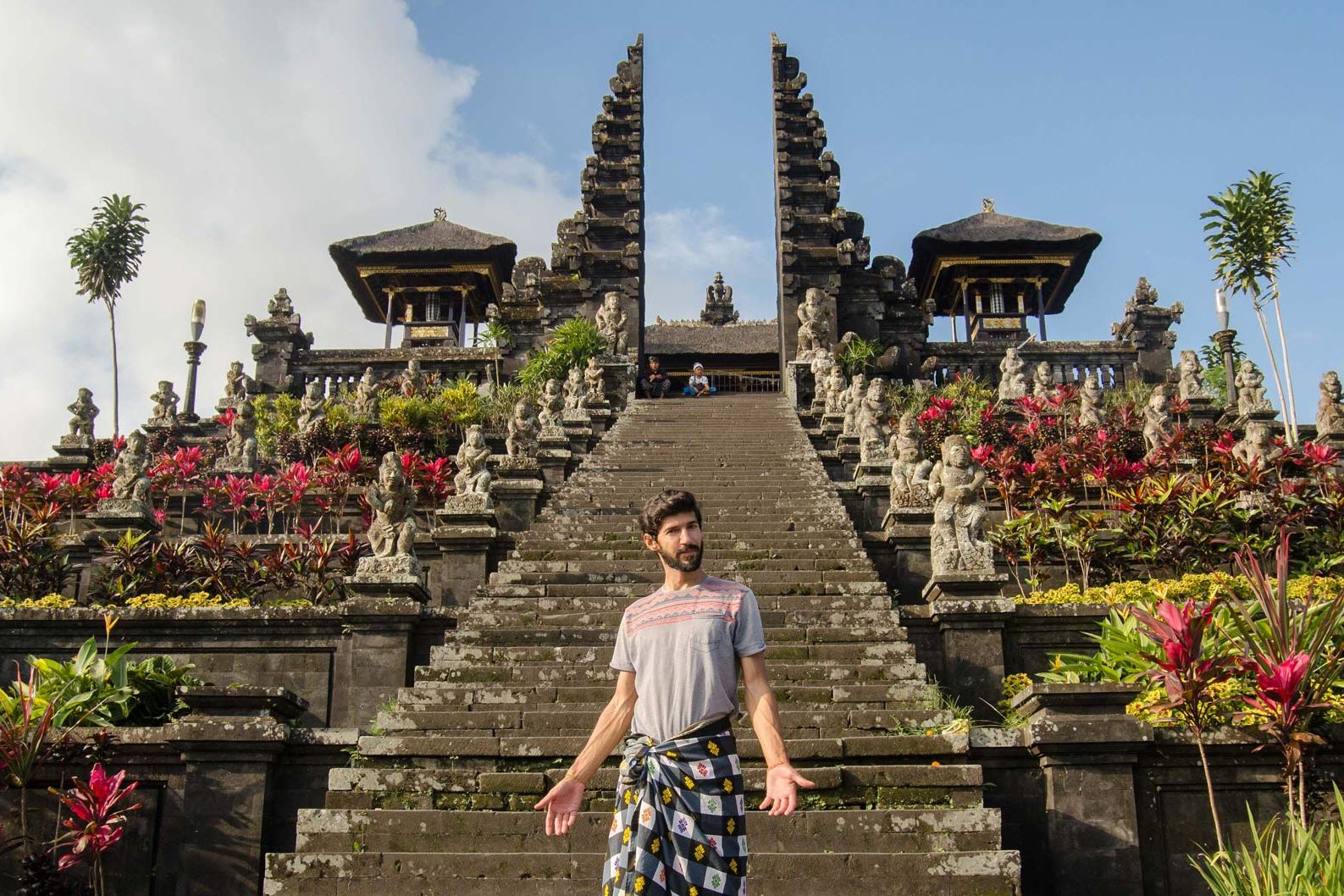
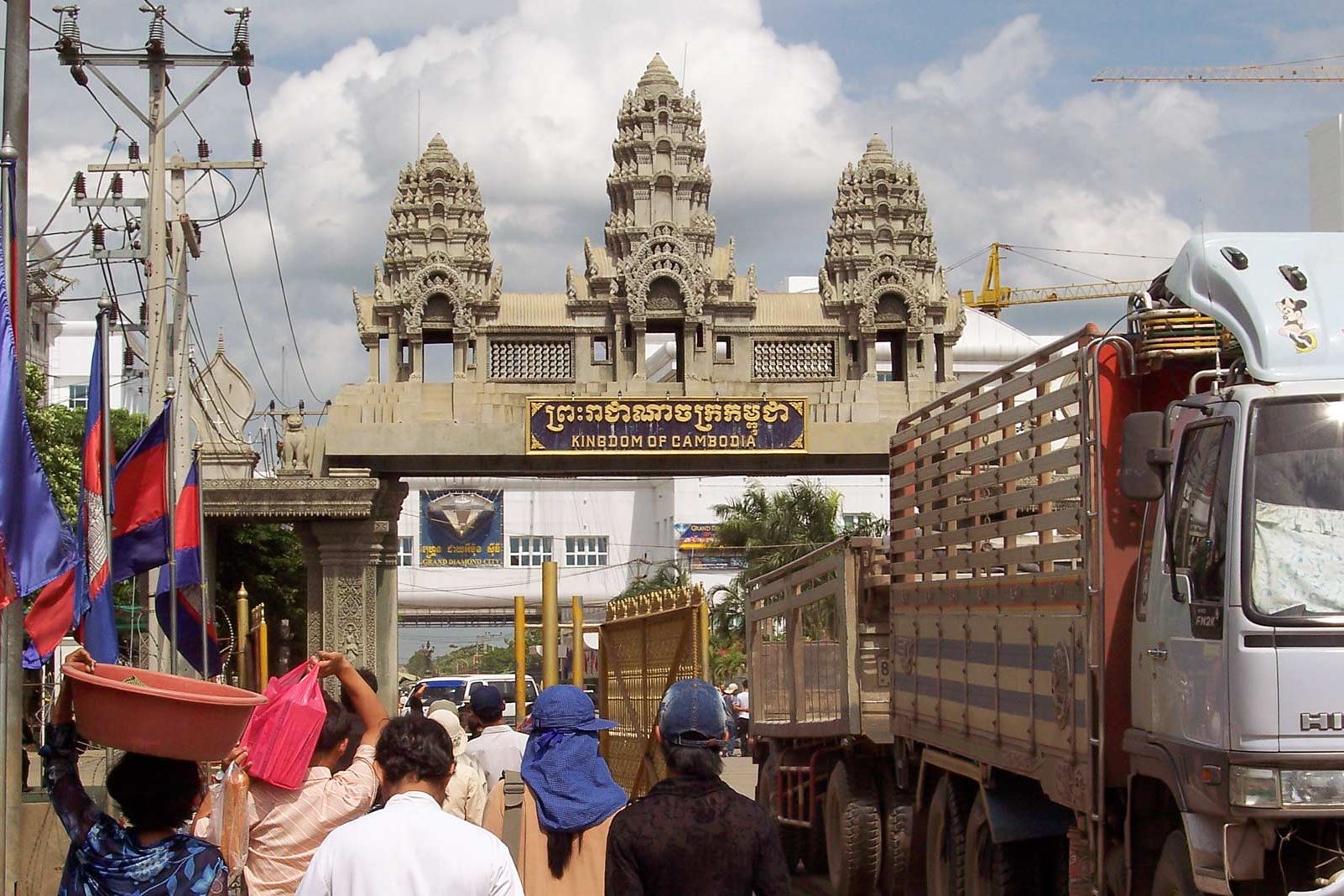
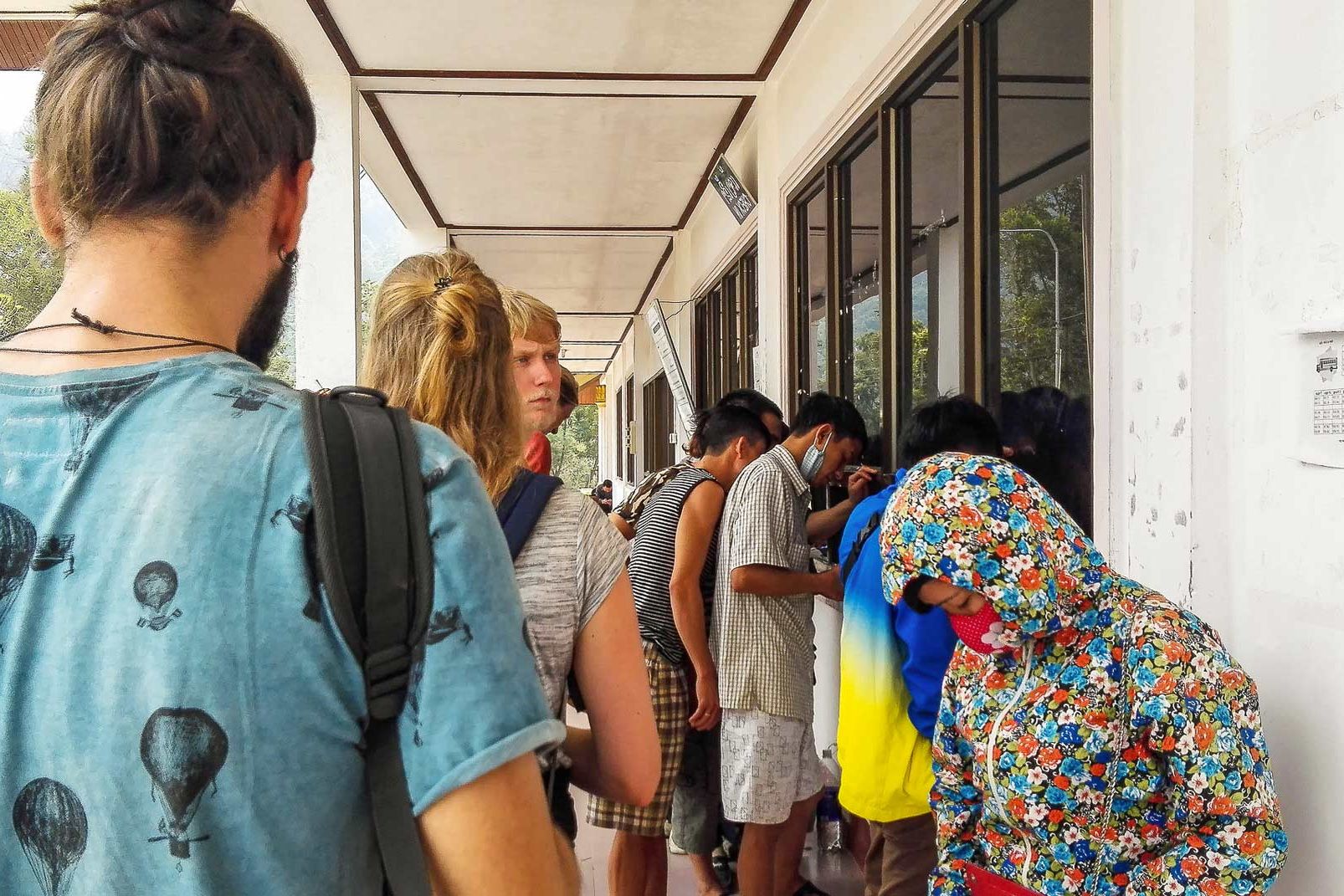
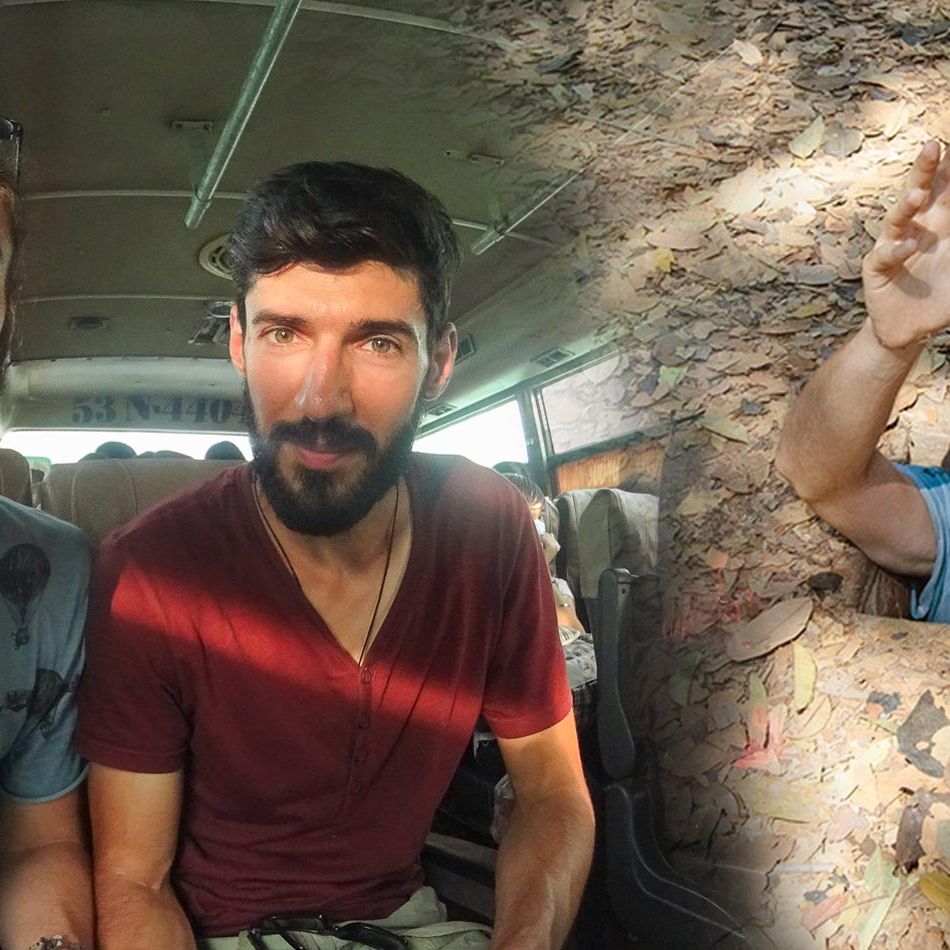
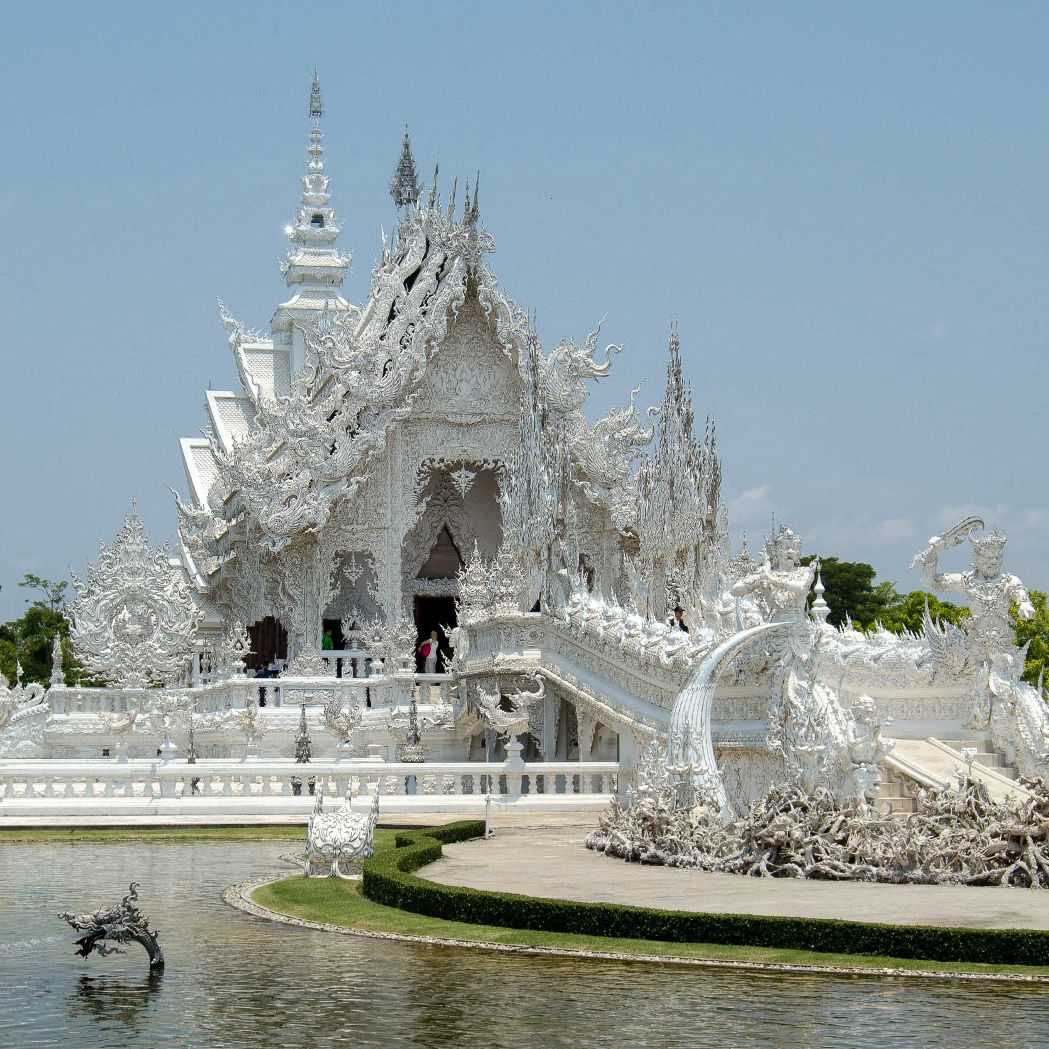
Hi Nuno and Mario.
I just found yor blog.
First of all:
I really appreciate that you go exploring SE-Asia!
Just a few words of warning regarding renting a scooter from an “old fart” who is travelling the area since a long time.
Yes, any rental shop will give you a scooter without asking for a proper license. (no one over asked me over all the many years)
No matter if Thailand, Myanmar, Laos etc.. -They want to make money!
The problems start if “the shit hits the fan” and you have an accident:
1: It´s 99% likely that the westerner will be blamed for the accident, no matter if he was right or wrong if locals are involved.
2: If you don´t have a proper lisence in your home country for the vehicle you are driving, your travel insurance will not cover any medical expenses resulting from the accident! (-a lot of people are not aware of this.)
3: I have seen dozends of people with bandages and/ or on crutches because they had an accident with their scooters over the years, -most of them without a proper license and no driving experience.
4: Be prepared for the rental shop to ask for hefty compensation for the damage on the bike.
Most have only minimum insurance, -if any.
In general:
Always bring your driving licence AND an international one from your home country, or, if you stay longer (3 months+), get a local one.
It´s pretty easy, and a driving license issued in any ASEAN state is valid in all others. (Great plus!)
E.g.: you can get it done in Thailand if you have youre home country´s + international driving license with some paperwork and a small fee at the transportation department.)
If you need to take a driving test, it costs a fraction of what it wold be at home. The license is valid in all ASEAN states but NOT in your home country.
Happy travels, and stay safe,
Tobi
Hi Tobi 🙂
Thanks for all the info, we will make sure to pass it on!
How difficult was it to ride the scooters? I’m going to be in Kampot and Kep in November and I have never driven a scooter before and have thought about renting one for the day. I’m a woman travelling on my own and I just worry that if I run into trouble, that I’ll be stuck without help and a scooter I don’t know how to use properly. Would it just be easier hiring a tuk-tuk and driver for the day?
Hi Karen,
The first time both of us drove a scooter was in Kampot, but we only did it due to the improvised driving lesson before and because it was surprisingly easy to drive.
Although it was a fun experience (because it all went well), traffic was chaotic at times. Now, considering you’ll be doing it by yourself and your lack of experience driving a scooter, it will always be safer to rent a tuk-tuk for the day. Just be prepared to haggle.
You’ll have fun regardless.?
Great impression on southern Cambodia there!
Sihanoukville, Kep and Kampot sure are great places in the relaxed south part of Cambodia. Love the beaches and tasty crab and Bokor Hill.
Thanks Joost!
Cambodia sure is awesome. ?
We’ve been missing the food so much…